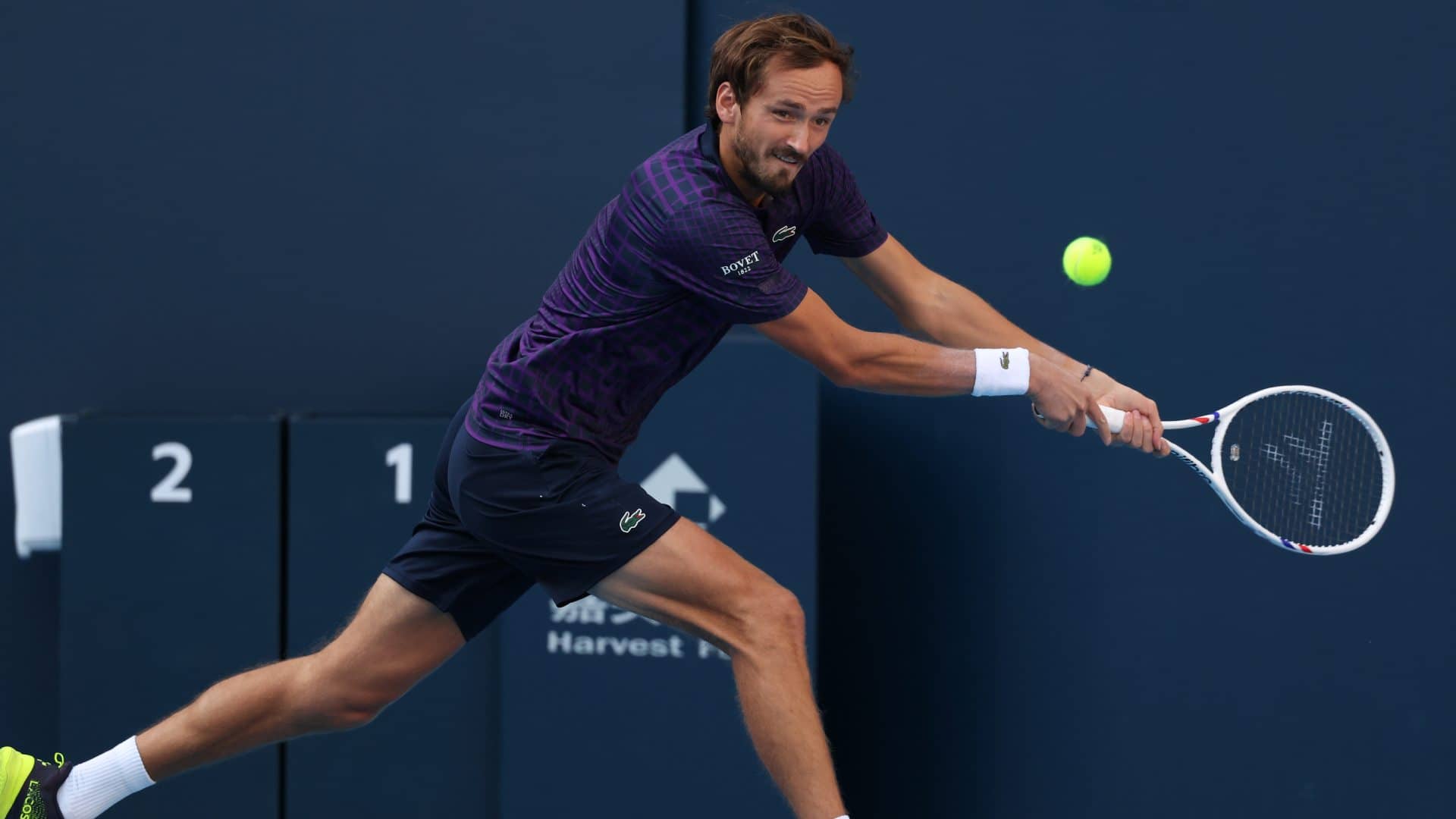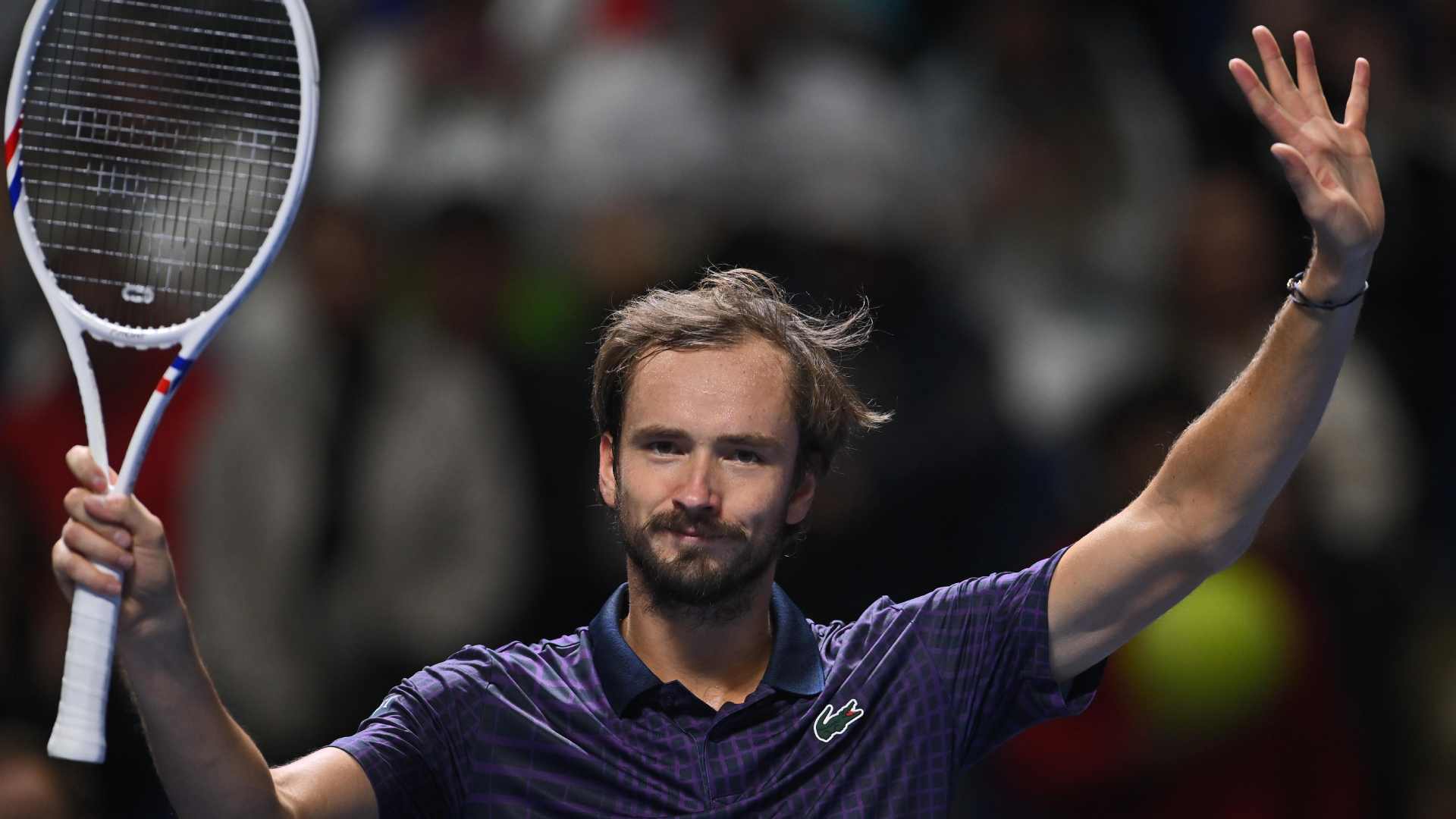In the cool October evening at the
China Open, where the hard courts hummed under the weight of expectation,
Daniil Medvedev glided across the baseline with a renewed ferocity. The 29-year-old Russian outmaneuvered World No. 3
Alexander Zverev in a clinical 6-3, 6-3 victory, securing his 60th tour-level semi-final and the first since June in Halle. This breakthrough carried the scent of redemption, a quiet assertion against the frustrations that had clouded his season.
Medvedev’s path here had been fraught, his record against top-10 opponents a stark 1-2 entering the match, with that single win over Zverev in Halle standing as a lone beacon. Now, he stretched his head-to-head lead to 14-7, marking five straight victories over the German and snapping a 0-10 drought against top-5 players on hard courts—his first such win since toppling
Andrey Rublev at the 2023
Nitto ATP Finals. ATP Stats reveal he saved all four break points faced, landing 86 percent of first-serve points to keep pressure at bay, his returns deep and probing to disrupt Zverev’s rhythm.
“it’s great, but I always want more,” Medvedev said of the milestone he reached. “In the beginning of your career, numbers are important. When you achieve a lot, it’s more about just doing your best, and I haven’t been doing my best since some time, so I’m happy to be back in semis playing great, beating great opponents.”
Shadows lift on the baseline
The crowd’s murmurs swelled as Medvedev dictated from the backline, his elastic defense turning Zverev’s powerful groundstrokes into futile pursuits. He varied his backhand slices with underspin to skid low on the grippy surface, pulling the German wide before unleashing inside-out forehands that carved down the line. Zverev, seeded second and a hard-court force, chased shadows, his inside-in attempts met by Medvedev’s anticipatory lobs that reset the geometry of the rally.
Only one service game tested the Russian’s resolve, where Zverev’s returns hammered like a sudden squall, but he countered with deep crosscourt passes to hold firm. This poise echoed the tactical depth that once defined his game, blending aggression in one–two combinations with retreats that covered every angle. The air thickened with tension, the stands alive with the pulse of a shift, as Medvedev’s footwork blurred into a net of control.
“I played great, I was controlling the game pretty well. I felt like I had all the chances,” Medvedev said. “He had only, I think, one game on my serve where he put a lot of pressure on me and luckily I made a great game to save it. And other than that, I think I put a lot of pressure on him, played great and I’m happy to win.”
Mental court tilts in his favor
Psychology had weighed heavy this season, expectations pressing like the
Beijing humidity, but Medvedev flipped the narrative with calculated calm. His serve became an anchor, unreturned serves echoing as Zverev’s frustration mounted, errors spilling from his forehand under relentless pressure. The Russian prowled with sharpened focus, his eyes locked on the ball’s flight, transforming defense into offense with crosscourt winners that exploited the court’s edges.
This resurgence eased the toll of endless travel and nagging doubts, lifting him from No. 18 in the live rankings toward contention once more. The victory rippled through the arena, applause building like a gathering storm, as he reclaimed the relentless edge that fueled past triumphs. In a match of intertwined mind and muscle, Medvedev’s adjustments silenced the inner noise, his body language broadcasting quiet command.
Redemption awaits against young fire
Next looms
Learner Tien, the NextGenATP American who upended him at this year’s
Australian Open, a stinging early-season loss that exposed vulnerabilities. At 18, Tien brings raw speed and unpredictability to these hard courts, a foil to Medvedev’s tactical layers. Yet the Russian’s form—aggressive probes yielding to defensive walls, legs carrying him to every corner—positions him to dictate the semi-final’s tempo.
Reflecting courtside, sweat tracing his brow under the fading lights, he savored the balance rediscovered: not missing under fire, pushing forward with purpose. The China Open’s asphalt, unforgiving and familiar, amplified his evolution, each point a step from season’s shadows toward autumn’s promise. As the crowd’s energy lingered, this run hints at deeper runs, a hard-court renaissance bending toward the final, where ambition meets the next test.



